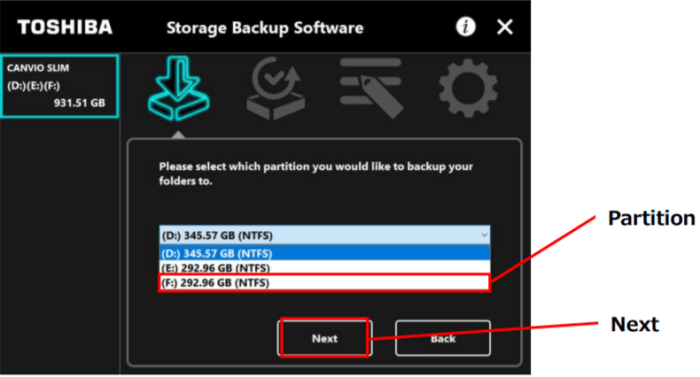Best encryption software for external hard drive – Protecting your sensitive data stored on external hard drives is paramount in today’s digital landscape. Whether you’re storing personal photos, financial records, or confidential work documents, robust encryption is essential. This comprehensive guide explores the best encryption software options available, helping you choose the right solution for your needs and ensuring your data remains secure.
Understanding Encryption and its Importance for External Hard Drives
Encryption transforms readable data (plaintext) into an unreadable format (ciphertext) using a complex algorithm and a cryptographic key. Only individuals with the correct key can decrypt the data and access its original form. This protects your information from unauthorized access, even if your hard drive is lost, stolen, or compromised.
For external hard drives, encryption is particularly crucial because these devices are often more susceptible to theft or loss than data stored internally on a computer. Strong encryption provides an extra layer of security, significantly reducing the risk of data breaches.
Types of Encryption: Symmetric vs. Asymmetric
Two main types of encryption exist:
- Symmetric Encryption: Uses the same key for both encryption and decryption. It’s generally faster but requires secure key exchange. Examples include AES (Advanced Encryption Standard) and Blowfish.
- Asymmetric Encryption: Uses two keys – a public key for encryption and a private key for decryption. This eliminates the need for secure key exchange, making it ideal for secure communication and digital signatures. RSA is a common example.
Many encryption software solutions utilize a combination of these methods for enhanced security.

Source: ubackup.com
Top Encryption Software for External Hard Drives
Choosing the right encryption software depends on your specific requirements, technical expertise, and budget. Here are some of the leading options:
1. VeraCrypt
VeraCrypt is a free, open-source disk encryption software based on TrueCrypt. It’s known for its strong security, cross-platform compatibility (Windows, macOS, Linux), and ease of use. It allows you to create encrypted containers or encrypt entire partitions/drives, offering flexibility for various security needs. Its open-source nature allows for community scrutiny, increasing trust in its security.
2. BitLocker (Windows)
Built into Windows Pro and Enterprise editions, BitLocker offers full disk encryption for internal and external drives. It’s a convenient option for Windows users, integrating seamlessly with the operating system. However, it’s not available on Windows Home editions, and its reliance on the TPM (Trusted Platform Module) can pose limitations in some scenarios.
3. FileVault (macOS), Best encryption software for external hard drive
Similar to BitLocker, FileVault is Apple’s built-in disk encryption for macOS. It provides robust encryption for internal and external drives, offering a user-friendly interface and strong security. It’s a solid choice for Mac users, integrating well with the Apple ecosystem.
4. PGP Whole Disk Encryption
PGP Whole Disk Encryption is a commercial solution known for its enterprise-grade security and features. It offers advanced encryption algorithms, strong key management, and centralized administration capabilities, making it suitable for organizations with stringent security requirements. It supports various operating systems and provides robust data protection.
5. AxCrypt
AxCrypt is a user-friendly encryption tool that offers both file and folder encryption as well as whole-drive encryption. It’s suitable for both personal and business use and is known for its intuitive interface. While not as feature-rich as some enterprise-level solutions, it provides a good balance of security and ease of use.
Choosing the Right Encryption Software: Factors to Consider
Several factors should guide your decision when selecting encryption software:
- Operating System Compatibility: Ensure the software supports your operating system (Windows, macOS, Linux).
- Ease of Use: Consider the software’s user interface and how easily you can encrypt and decrypt your data.
- Security Features: Look for strong encryption algorithms (e.g., AES-256), key management options, and other security features.
- Cost: Determine whether you need a free, open-source solution or a commercial product with advanced features.
- Performance Impact: Encryption can slightly impact performance; consider this if you require high-speed access to your data.
- Support and Documentation: Check the availability of technical support and comprehensive documentation.
Best Practices for External Hard Drive Encryption
- Use a strong password: Choose a long, complex password that’s difficult to guess.
- Enable automatic encryption: If your software allows it, set up automatic encryption to save time and ensure consistent protection.
- Regularly back up your encryption key: Store your key securely in a separate location, preferably offline.
- Keep your software updated: Install security patches to address vulnerabilities and maintain the highest level of protection.
- Use a reputable software vendor: Choose software from trusted sources to minimize the risk of malware or backdoors.
Frequently Asked Questions (FAQ)
- Q: Is encryption enough to protect my data? A: Encryption is a crucial layer of security, but it’s best used in conjunction with other security measures like strong passwords, regular backups, and antivirus software.
- Q: What happens if I lose my encryption key? A: You will lose access to your encrypted data. That’s why it’s critical to back up your key securely.
- Q: How much does encryption software cost? A: Costs vary widely. Many excellent free and open-source options exist, while commercial solutions offer advanced features at a price.
- Q: Can I encrypt a specific file or folder instead of the entire drive? A: Yes, many software options allow for both whole-disk encryption and file/folder encryption.
- Q: How does encryption affect the performance of my external hard drive? A: Encryption can slightly slow down read/write speeds, but the impact is usually minimal with modern hardware and algorithms.
Resources: Best Encryption Software For External Hard Drive
Call to Action
Protect your valuable data today! Choose the best encryption software for your external hard drive and ensure your sensitive information remains secure. Download a reputable encryption solution and take control of your data’s privacy.
Answers to Common Questions
What are the different types of encryption algorithms used in external hard drive encryption software?
Common algorithms include AES (Advanced Encryption Standard), which is widely considered a strong and reliable standard. Other algorithms may be available, but AES is generally preferred for its security and widespread adoption.
How do I recover my data if I forget my encryption password?

Source: explorateglobal.com
Recovery options vary depending on the software. Some offer password recovery features, while others may require a recovery key. It’s crucial to carefully follow the software’s instructions and securely store your recovery information.
Is hardware encryption better than software encryption for external hard drives?
Hardware encryption, often built into the hard drive itself, offers a higher level of security as the encryption process happens at a lower level. However, software encryption is often more versatile and accessible.
Can I encrypt only specific files or folders on my external hard drive, rather than the entire drive?
Many encryption software packages allow for selective encryption, allowing you to choose which files or folders to protect, offering greater flexibility in managing your data security.
